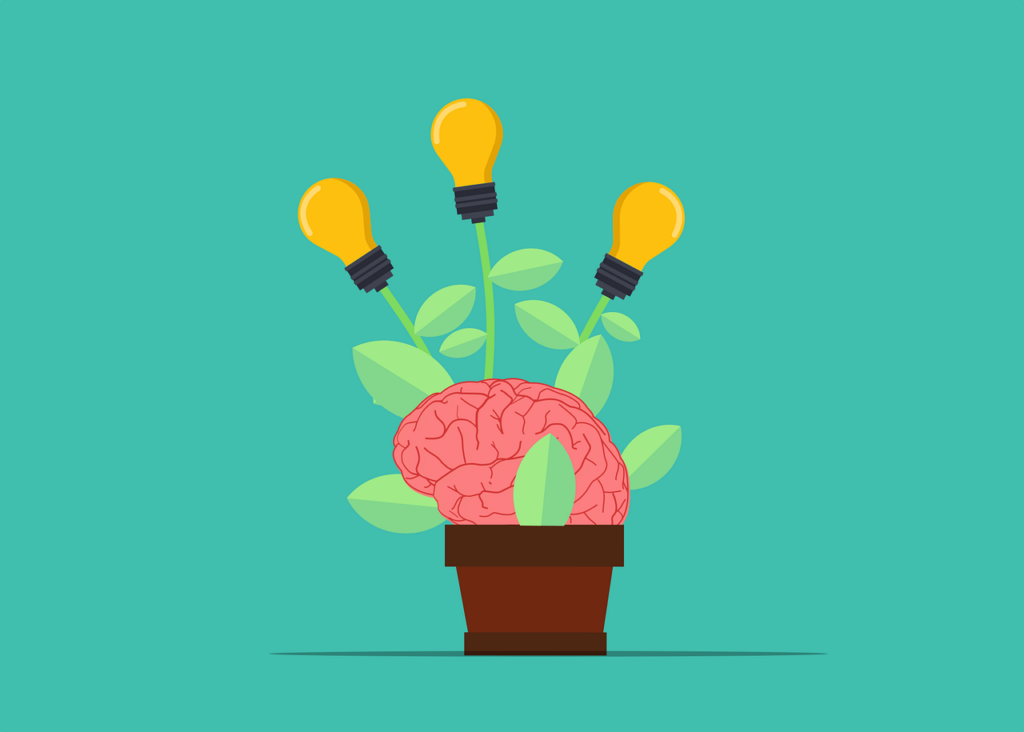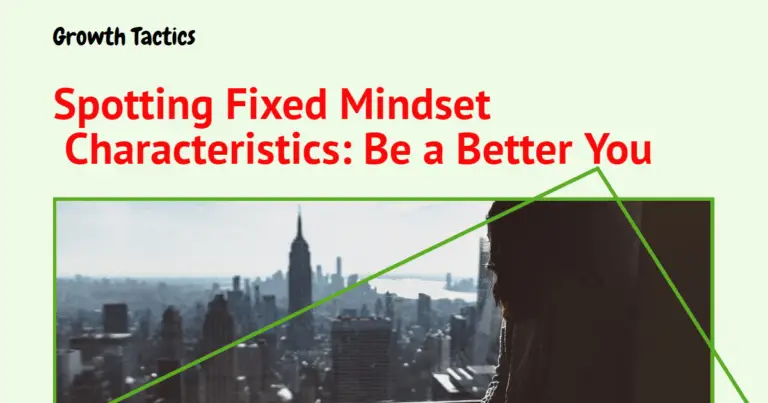A fixed mindset refers to the belief that a person’s talents and abilities are set in stone. With a fixed mindset, people believe that intelligence, creativity, and personality traits are fixed or innate characteristics that cannot be developed or changed substantially over time. This contrasts with a growth mindset, where people believe talents and abilities can be nurtured and expanded through effort, learning, and persistence.
Those with a fixed mindset tend to avoid challenges, give up easily, see effort as pointless, ignore constructive criticism, feel threatened by others’ success and lack motivation to improve.
They think that if you have a natural ability at something, you shouldn’t need to work hard, and that innate talent alone leads to success. A fixed mindset fosters fragile self-esteem, perfectionism, and a tendency to label oneself as smart or dumb, talented or not.
In the fixed mindset, people’s sense of self-worth depends on measuring up to fixed ideals of competence, rather than growth and improvement. This mindset stifles motivation and limits achievement and success. It can be limiting and detrimental both personally and professionally.
The concept of fixed vs growth mindset originated with the work of psychologist Carol Dweck. Her research showed that beliefs about intelligence and talents have a major impact on learning, resilience, and success. She found that praising effort over innate “smartness” helps promote a growth mindset.
Jump To Section
What Are the Fixed Mindset Characteristics?

Believing Your Abilities Are Innate
A key characteristic of the fixed mindset is believing that your abilities and intelligence are innate traits that cannot be changed. Someone with a fixed mindset tends to view their strengths and weaknesses as fixed. They believe that their intelligence, talents, and personality were predetermined at birth and cannot be improved through effort.
For example, someone with a fixed mindset might say “I’m just not a math person” or “I don’t have an artistic bone in my body.” They view these traits as permanent limitations that cannot be overcome. Effort is seen as fruitless because no amount of hard work can change their innate level of intelligence or talent.
This core belief leads people with a fixed mindset to avoid challenges and give up easily. Since they believe their abilities are fixed, difficult tasks seem threatening. Failure would be evidence that they simply don’t have the natural ability to succeed. Rather than risk failure and confront their limitations, they prefer to stay in their comfort zone and only tackle challenges they know they can handle.
Avoiding Challenges Due to Fear of Failure
People with a fixed mindset tend to avoid challenges and stay firmly within their comfort zones. They don’t want to try difficult things because failing would be devastating to their self-image. For someone with a fixed mindset, failure is seen as a permanent indictment of their abilities, not as a learning opportunity.
As a result, people with a fixed mindset often self-handicap by procrastinating or putting in minimal effort. This provides them with an excuse if they don’t succeed—”I could have done better if I tried harder.” It’s a defensive strategy to protect their egos in case they fail. They’d rather not try than try hard and still fall short.
Deep down, those with a fixed mindset don’t believe they can develop their skills or abilities substantially, so they see little point in pushing themselves. They feel it’s better to avoid challenges and stick to what they know they can do reasonably well already. Challenges make them anxious because failure seems imminent.
Seeing Effort as Fruitless

A key characteristic of the fixed mindset is the belief that effort is fruitless because intelligence and talent are innate. Someone with a fixed mindset doesn’t see value in putting in effort to improve, as they believe you either have natural ability or you don’t.
If faced with a setback or challenge, a person with a fixed mindset is more likely to give up easily. They think “I’m just not good at this” or “This is too hard for me”. Since they believe abilities are fixed, extra effort seems pointless. For example, if a student with a fixed mindset struggles with a mathematical concept, they are more likely to conclude “I’m just not a math person” rather than dedicating time and effort to master the concept.
The fixed mindset views innate talent as more important than acquired skills. So when faced with a challenge, someone with a fixed mindset is quicker to give up rather than push themselves outside their comfort zone. They don’t believe effort can change the hand they were dealt. This mindset limits their potential for growth.
Ignoring Constructive Criticism
People with a fixed mindset tend to take feedback and constructive criticism very personally. They view critiques as attacks on their innate abilities, rather than opportunities for growth and improvement. As a result, they ignore or dismiss feedback, even when it could help them get better.
Instead of listening openly and learning from the critique, someone with a fixed mindset is more likely to lash out at the critic. They may get defensive and make excuses for why the criticism isn’t valid. Or they may counterattack the critic’s abilities in an effort to protect their own ego. For example, an employee receiving critical feedback from their manager may accuse the manager of being incompetent.
This tendency to ignore constructive feedback limits a person’s ability to develop new skills and improve. It can also damage work and personal relationships, since fixing mistakes and addressing shortcomings is difficult without accepting input from others. The fixed mindset fosters a fragile sense of self that requires sheltering from criticism at all costs.
Feeling Threatened by Others’ Success
People with a fixed mindset tend to see the world in terms of winners and losers. They view success as a zero-sum game, where there are only so many rewards to go around. As a result, they feel threatened by the accomplishments of their peers.
When someone else succeeds, a person with a fixed mindset takes it as a personal slight. They may feel jealous and resentful, even if the other person has earned their success through hard work. This mindset makes it difficult for them to celebrate others’ achievements.
A key characteristic of the fixed mindset is an inability to collaborate well. People are seen as competitors, not teammates. There is little motivation to work together, since it may help others succeed. Sharing information, providing feedback, and building on each other’s ideas does not come naturally.
The fixed mindset causes people to turn inward and sabotage relationships. Constructive criticism is ignored in favor of protecting a fragile self-image. Outperforming others becomes the goal, even if it’s at the expense of the team. Growth and improvement take a back seat to “winning” and proving one’s innate abilities.
Lack of Motivation to Improve

People with a fixed mindset tend to lack motivation to improve themselves or their skills. They are complacent and prefer to stick to their comfort zones rather than seek growth opportunities.
Someone with a fixed mindset believes their abilities are static, so they see no point in trying to get better. They think “I am who I am” and don’t believe change or improvement is really possible. This leads to a complacent attitude and an avoidance of challenges that could lead to growth.
For example, a fixed mindset employee may continue doing the bare minimum at their job year after year and not seek promotions or skills development. Or a student with a fixed mindset may coast through school without trying to improve their grades or learn new study techniques. They are content staying at their current level since they believe that’s their limit.
This lack of motivation stems from the fixed mindset belief that effort is fruitless. So rather than expend energy trying to improve, it’s easier for them to remain complacent. They’d rather stay within their comfort zone than venture out and potentially fail while trying something challenging. Their complacency reinforces their belief that change isn’t possible.
Breaking out of this complacency requires adopting a growth mindset – the belief abilities can be developed with effort over time. With a growth mindset, one sees the value of challenging themselves and believes improvement is within reach through perseverance. This provides the motivation needed to step outside one’s comfort zone and actively seek growth.
Perfectionism
Perfectionism is a key characteristic of the fixed mindset. People with a fixed mindset tend to have an all-or-nothing thinking pattern and judge themselves harshly. If they don’t do something perfectly, they see it as a total failure.
This perfectionist thinking leads to severe procrastination and avoidance of challenges. People with a fixed mindset will put off tasks or assignments because they’re afraid they won’t be able to do them perfectly. So rather than try and risk failure, they simply don’t do it at all. This procrastination can become paralyzing and prevent any progress or growth.
The fixed mindset person sets unrealistically high expectations for themselves that are nearly impossible to achieve. Even a small mistake feels catastrophic because their self-worth is so tied to perfection. They berate themselves over the tiniest flaw and feel like a complete failure if the outcome isn’t 100% perfect.
This harsh self-judgment erodes self-confidence and makes it difficult to recover from setbacks. The fixed mindset perfectionist gets easily discouraged and is more likely to give up after a perceived failure. Their need for perfection limits their ability to learn and grow.
Fragile Self-Esteem
Those with a fixed mindset tie their self-worth to their achievements and performance. Every failure feels like a personal attack on who they are as a person. They take constructive criticism and feedback very personally, even viewing it as a character flaw.
People with fragile self-esteem seek constant validation from external sources to make themselves feel worthy. They need others to constantly tell them how great and talented they are. Even a small amount of negative feedback can send their self-confidence spiraling.
A fixed mindset causes people to develop an unstable sense of self. When they succeed, they feel worthwhile and when they fail, their self-esteem takes a nosedive. They rely heavily on external praise and recognition to boost their inner sense of value. However, this validation is fleeting and requires constant maintenance.
True self-confidence comes from within. However, those with a fixed mindset do not cultivate inner strength. They let outer circumstances and achievements determine their self-image. This leads to fluctuating self-esteem that requires external props to stay afloat. Developing inner stability is key to overcoming this mindset.
How to Avoid a Fixed Mindset

Recognize Fixed Mindset Triggers
Start by recognizing situations that trigger a fixed mindset. These can be moments when you are challenged, when you encounter failure, or when you’re comparing yourself to others. Awareness is key in starting the process of change.
Reflection and Journaling
Reflect on your reactions to these situations. Journaling can be a helpful practice as it allows you to document and review your reactions to various scenarios and monitor your progress over time.
Challenge Fixed Mindset Thoughts
When you notice a fixed mindset thought, challenge it. Ask yourself if the thought is really true. Can you come up with examples where you or someone else has grown or changed?
Positive Self-Talk
Replace fixed mindset thoughts with growth-oriented ones. Instead of thinking “I can’t do this,” tell yourself “I can’t do this yet, but I can learn.”
Embrace Challenges and Persist
Instead of avoiding challenges, embrace them. See them as opportunities to learn and grow rather than threats to your intelligence or talent.
Persevere in the Face of Setbacks
Understand that setbacks are part of the learning process. When faced with difficulty, persist rather than give up. Remember that effort and persistence are key to overcoming obstacles.
Learn from Criticism
Instead of taking criticism personally or defensively, listen to what is being said. Assess whether it’s constructive and how you can use it to improve.
Act on Constructive Feedback
Take action on the feedback you receive. Make a plan for how to implement advice or suggestions to improve your skills or performance.
Celebrate Growth and Effort
Take time to acknowledge your growth and the effort you’ve put in. Recognizing your own progress helps reinforce a growth mindset.
Praise the Process, Not Just the Outcome
Celebrate the process of learning and the effort involved, not just the successful outcomes. This helps to reinforce the value of persistence and effort.
Cultivate a Sense of Purpose
Find ways to connect what you’re doing to your core values or purpose in life. This can make learning and growth more personally meaningful and motivating.
Set Learning Goals
Set goals that are focused on learning and self-improvement rather than just performance-based end results. This can shift your orientation from proving yourself to improving yourself.
Surround Yourself with Growth Mindset Influences
Surround yourself with people who exemplify a growth mindset. Role models can provide inspiration and concrete examples of how to live with a mindset oriented toward growth and learning.
Engage in Communities that Support Growth
Become an active participant in communities or groups that encourage continuous learning, resilience, and mutual support.
Practice Flexibility and Adaptability
When faced with barriers, be flexible and willing to develop new strategies. This can involve seeking out new resources or methods to learn and improve.
Embrace Change
Understand that change is constant and being adaptable is a trait of a growth mindset. Approach change with curiosity and an eagerness to learn.
By following these guidelines, you can begin to shift from a fixed mindset to a more growth-oriented approach. It’s a process that takes time and persistence, but the benefits of developing a growth mindset can lead to more personal fulfillment and achievement in all aspects of life.
Conclusion
In summary, the key characteristics of a fixed mindset include believing your abilities are innate, avoiding challenges, seeing effort as fruitless, ignoring constructive criticism, feeling threatened by others’ success, lack of motivation to improve, and perfectionism that leads to fragile self-esteem.
While these traits may feel comfortable and safe, they ultimately hold you back from reaching your full potential. The good news is that you can make the transition to a growth mindset. With a growth mindset, you believe abilities can be developed through dedication and hard work. Challenges become opportunities to learn. Constructive criticism is appreciated as a chance to improve. The success of others inspires rather than threatens you.
Making this mindset shift opens up a world of possibilities. You become motivated to put in effort to grow your abilities. You develop resilience and see failure as a chance to learn. Your self-esteem stems from knowing you’re constantly improving, rather than needing to be perfect.
If you recognize some of these fixed mindset traits in yourself, the most important step is awareness. Once you can identify fixed mindset thoughts, you can start to challenge them. It won’t happen overnight, but with practice you can rewire your brain’s habits. You have the power to change your mindset and unlock your true potential. The path to growth starts today.


